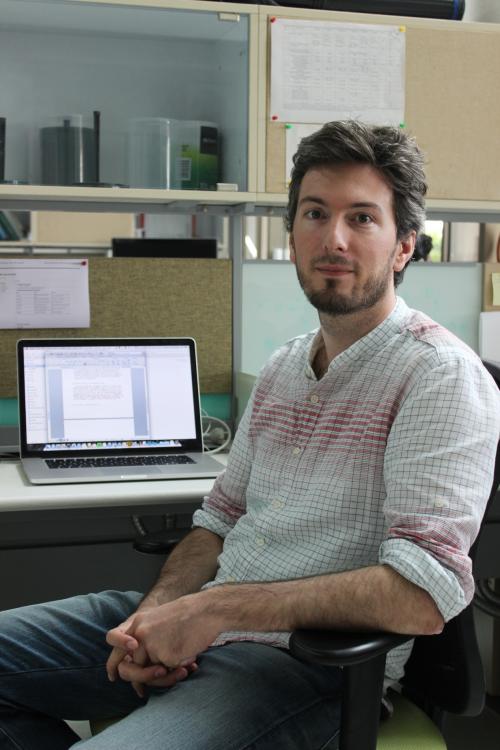In Conversation with Thomas van Zanten- EMBO Long-Term Fellow
NCBS welcomes Thomas van Zanten, recipient of the prestigious EMBO Long-term Fellowship for postdoctoral research. Thomas joins NCBS after training at ICFO-The Institute of Photonic Sciences, Barcelona. He got his Master's from the University of Twente, The Netherlands, in the field of Materials Science and Technology of Polymers and received his PhD from Universitat de Barcelona, Spain, in the field of Applied Physics and Optics.
Could you tell us about your journey from Chemical engineering to the work you propose to do here?
After my training as a Chemical Engineer I moved from The Netherlands and started my graduate research in Spain. At that time, an increasing amount of indirect data suggested that the cellular membrane was segregated at the nanometer scale. However, direct observation of this nanoscale organisation required the use of optical techniques having resolutions better than conventional set-ups, which are limited by diffraction. My PhD research focussed mainly on using a super-resolution technique called NSOM-Near-field Scanning Optical Microscopy to map nanoscale assemblies of proteins and lipids on the cell membrane. This entailed imaging and quantitative analysis supplemented with a continuous effort to refine the microscope in order to tackle novel challenges. After completing my PhD I pursued several facets of nanotechnology to try and engineer an improved photonics platform for observing nanoscale dynamics in living cells. By that time, I had already become familiar with the seminal studies from the groups of Satyajit Mayor and Madan Rao. Last year I got the chance to actually perform some experiments within the environment provided by NCBS. This has allowed me to taste the research environment, feel the culture and experience life in Bangalore.
What has been your research interest in the last couple of years that formed the basis of what you set to do here?
Over the years I have become more and more fascinated by the cellular plasma membrane. All communication that is directed to the cell passes through the plasma membrane. Reciprocally, the plasma membrane is involved in signals that the cell transmits to the environment. The membrane, however, is not inert but actively engaging in this transmission event. It not only transmits but translates signals as suggested by analog-to-digital-to-analog conversions taking place at the plasma membrane through signalling receptors and their downstream signalling assemblies. Nevertheless, many of its attributes, like lipid and receptor organisation during signalling events, have remained enigmatic due to the spatial scales at which they take place.
What impact will the EMBO long-term fellowship have on your career?
Together with Professor Mayor, we decided to send a proposal in for a long-term fellowship from the EMBO. The EMBO long-term fellowship is a competitive scheme that allows young European researchers to pursue their research anywhere in the world. It provides very generous support and therefore was an ideal scheme to apply for. The central theme of the proposed research is to get an insight into active mechanisms by which the cell can deploy dynamic nanoscale heterogeneities to create steady-state functional assemblies that support the transfer of information across the plasma membrane. The focus lies largely on actin as a prime player in these processes.
On 29th November 2013, I received the notification that I was granted the EMBO long-term fellowship. This has given me a chance to pursue my research outside the boundaries of Europe on what, for me, is one of the most fascinating interphases; the cellular membrane. The freedom and transparency that I have experienced from them is remarkable and I am looking forward to the coming times.
Please could you elaborate on what has it been like to move to India?
Just over a month ago I arrived in Bangalore to start this new phase of my life and in my research. The major difficulty for me has been dealing with the surprising amount of paperwork, which I was simply not used to. It taught me patience, persistence and positive attitude.
As for the NCBS, I am overwhelmed with generosity and friendliness of many people who are eager to explain new challenging scientific techniques, helped finding a home, are showing the best places to eat and regularly challenge me at sports.
About EMBO Long-Term Fellowships
The EMBO Long-Term Fellowships are awarded for a period of up to two years and support post-doctoral research visits to laboratories throughout Europe and the world. International exchange is a key feature in the application process.
